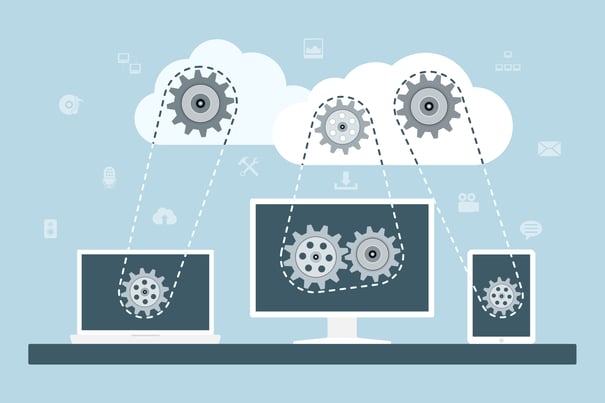
Moving from the old to the new is usually daunting. It seems like a risk (especially if the old ways do work, albeit not efficiently). With the fast evolution in technology and in the way we do business, however, it may be time we change our stance and evolve with the new so we won’t become redundant. This becomes even more imperative with regards to cloud computing and self-hosting. You may be reluctant to move your business from self-hosting services to cloud computing environments. The following points will give you reasons why you should certainly have a change of mind.
Security
Cloud computing systems are significantly better secured than self-hosting services. This comes down to the fact that cloud computing systems use nix-based systems (Unix or Linux) which are less vulnerable to virus attacks than traditional computer networks.
Software
The majority of systems nowadays use one form of web-based application or another. Consequently, self-hosted systems need to make use of an internet server in order for data on it to be accessed by a user or a third party. This increases the load the external systems carry and requires a more complex internal network. Cloud computing systems, however, have this infrastructural backbone already in place (even for SaaS and DaaS applications), thus greatly reducing the external support the systems require and their internal network needs.
Accessibility
An advantage of cloud computing is that data stored on the cloud can be easily accessed from anywhere there is internet connectivity. A self-hosted system, on the other hand, in addition to requiring internet connectivity, also needs a VPN setup.
Cost
A very important advantage of cloud computing, especially for small businesses, is that fact that it is much cheaper than traditional computing systems. Self-hosted servers and networks need constant maintenance, hardware upgrades, and updates. As your business expands, it is necessary to increase your server capacity and acquire and maintain more user systems. This greatly increases the cost of doing business when you’re using self-hosted servers as you’ll need to purchase more equipment and do more upgrades and updates. With cloud computing systems, however, the costs are dramatically reduced. For example, thin client terminal-type solutions can replace client systems. These are less expensive to purchase than desktop systems due to less complex designs and lower manufacture costs. Better still, maintenance costs are virtually non-existent as the majority of the updates and upgrades are done on the cloud server.
Eco-friendly
In order to operate, self-hosted systems use a lot of servers and hardware. These generate a lot of by-products that are harmful to the environment. The cloud is not physical and does not emit harmful gas into the air. This contributes, in no small way, to protecting the environment.
Considering the points above, cloud computing systems are significantly a better choice than self-hosted systems. If you’re still using self-hosted services for your business, you should certainly consider evolving with the trend of innovation and benefits cloud computing brings to the table. If you’re looking for a way to bring down your IT expenses, you should certainly move your business to the cloud.
